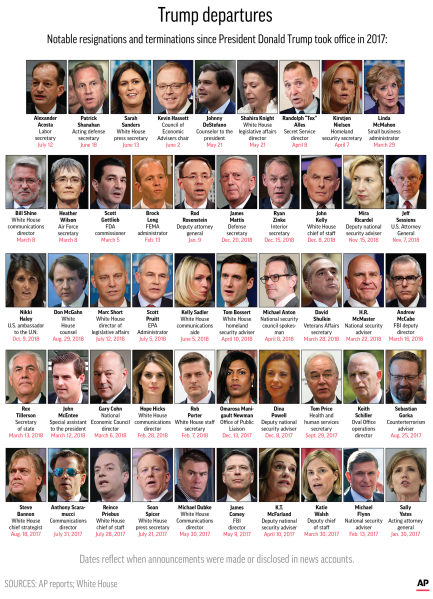The Trump administration has once again found itself at the center of a legal and political storm, as it defies a Supreme Court order. This bold move by the administration has sparked widespread controversy and debate across the nation. Legal experts, politicians, and citizens alike are questioning the implications of such defiance and what it means for the future of checks and balances in the United States government.
At the heart of this issue lies the question of whether the executive branch can operate independently of judicial oversight. The administration's actions have raised concerns about potential constitutional crises and the erosion of democratic principles. As the legal battle unfolds, all eyes are on how the judiciary will respond and what measures they might take to enforce their rulings against an unyielding White House.
Judicial Tools Against Noncompliance
More than 10 federal courts have temporarily halted or rejected actions by the new Trump administration on issues ranging from spending to immigration policies. These decisions highlight the significant role that the judiciary plays in maintaining a balance of power within the government. Judges wield a variety of tools to ensure compliance with their orders, even when faced with resistance from other branches.
One of the primary methods judges employ is the use of contempt citations. By holding officials in contempt of court, judges can impose fines or imprisonment until the party complies with the court's ruling. Additionally, judges may enlist third parties, such as marshals or law enforcement agencies, to assist in enforcing their decisions. Such measures underscore the judiciary's commitment to upholding the rule of law.
Beyond punitive actions, judges can also seek clarification or reinforcement from higher courts, including the Supreme Court, to bolster their authority. This collaborative approach ensures that the judiciary remains a robust check on executive overreach, reinforcing the foundational principles of democracy.
Partial Loss and Legal Implications
The Supreme Court recently handed down a partial loss to the Trump administration, specifically addressing the deportation case of Kilmar Armando Abrego Garcia. Despite acknowledging that deporting Garcia was illegal, the administration proceeded with the action, raising questions about its adherence to judicial rulings. This decision underscores the complexities involved in balancing executive discretion with judicial oversight.
Legal scholars argue that such defiance sets a dangerous precedent, potentially undermining the authority of the judiciary. The administration's justification often centers around perceived threats to national security or executive privilege, yet these arguments must be weighed against established legal frameworks. As the case progresses, it highlights the ongoing tension between the branches of government and the need for clear boundaries.
In response to this partial loss, the administration may face increased scrutiny from both the judiciary and the public. The outcome could influence future interactions between the executive and judicial branches, shaping how each interprets and enforces their respective powers.
Administration's Stance on Judicial Orders
A second administration official defended the president's actions, asserting that the Trump administration was not deliberately defying the judge's order regarding deportations. Instead, they argued that the administration's interpretation of the ruling differed from that of the judiciary. This perspective reflects broader debates about the scope and limits of executive authority.
Moreover, the administration points to past instances where similar disputes arose, emphasizing that disagreements over legal interpretations are not uncommon. They maintain that their actions align with the intent of the law, albeit through alternative means. Such claims, however, do little to assuage concerns about potential overreach or disregard for judicial rulings.
As discussions continue, the administration faces mounting pressure to clarify its stance and demonstrate a willingness to engage constructively with the judiciary. Failure to do so risks further eroding public trust and complicating efforts to achieve bipartisan solutions.
Escalating Tensions Between Branches
A former federal judge weighed in on the escalating tension between the White House and the judiciary, offering insights into possible repercussions should the administration persist in defying court orders. Their analysis suggests that continued noncompliance could lead to severe consequences, including financial penalties and reputational damage for those involved.
This escalation underscores the importance of maintaining respectful dialogue between branches of government. While disagreements are inevitable, finding common ground is crucial for preserving the integrity of the nation's legal and political systems. The judiciary's role in this dynamic remains pivotal, serving as a safeguard against arbitrary exercises of power.
Looking ahead, observers anticipate increased vigilance from the courts in monitoring executive actions. This heightened scrutiny aims to prevent any unilateral moves that might undermine the delicate balance of power enshrined in the Constitution.
Potential Backlash from Defiance
If the Trump administration continues to defy court orders, it risks significant backlash that could ultimately harm its own interests. Such defiance not only invites legal challenges but also fosters public dissent, which can impact electoral outcomes and policy implementation. Recognizing these risks, some within the administration advocate for recalibrating their approach to better align with judicial expectations.
Furthermore, the long-term implications of such defiance extend beyond immediate political considerations. They include potential damage to international relations and diminished credibility on the global stage. Countries and organizations worldwide monitor how nations uphold the rule of law, making compliance with domestic rulings essential for maintaining respect and influence abroad.
In conclusion, while standing firm on certain principles may appeal to core supporters, the administration must weigh these benefits against the broader consequences of alienating key stakeholders and jeopardizing institutional stability. Striking a balance becomes imperative for sustaining effective governance amidst evolving legal landscapes.

